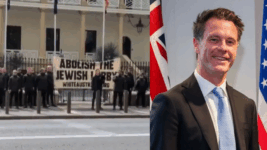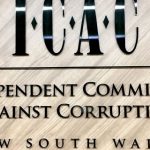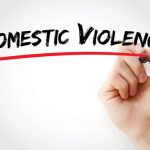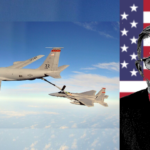NSW Government to Reintroduce Antiprotest Move-On Power, After Police Approve Nazi Rally

Our government is using the decision by police to authorise a neo-Nazi protest to reintroduce unconstitutional laws empowering police to issue move on directions at places of worship.
The salve New South Wales premier Chris Minns and attorney general Michael Daley have conceived in respect of neo-Nazi entity White Australia, or the gang formerly known as the National Socialist Network, having demonstrated outside of the state’s parliament with the authorisation of the police force, is to redraft and reenact the unconstitutional antiprotest move on law the NSW Supreme Court just struck down.
The state’s chief lawmaker told the lower house on Tuesday, 11 November 2025, that two bills are to be tabled next week in order to deal with what is now being fielded as ‘the emerging neo-Nazi threat’. One piece of legislation will contain a group of amendments to tweak current laws, while another will serve to remove a court-repealed move on power and reenact it as a revised law.
The recently struck down police power to issue move on directions served to allow police to direct those rallying near a place of worship to go away, with the term ‘near’ left up to officer discretion. The law could be exercised even if protesters weren’t obstructing worshippers, so they could move on activists for blocking people on a footpath. So, this was effectively an all-purpose power to shift most protests.
Minns told parliament on Tuesday that alongside the reformulated move on power that had been passed earlier this year, his government is also considering a prohibition on Nazi behaviour and speech, and the removal of a sunset clause relating to the offence of inciting racial hatred, which was controversially passed as a last minute addition in February, but didn’t serve to prevent the Nazi rally.
So, NSW Labor is about to undertake a repeat of its mid-February legislative onslaught, which ultimately appeared to be measures passed that were helpless in the face of a neo-Nazi rally, especially when NSW police had considered it legitimate. And another clear outcome of the Nazi protest has been a growing understanding that the passing of laws won’t prevent rising Nazism.
Completely unrelated to Nazis
“Legislation will be introduced to clarify the provision that was impugned earlier this year in the Supreme Court of New South Wales decision of Lees versus State of New South Wales, where the court declared that section 200(5) of the Law Enforcement (Powers and Responsibilities) Act (NSW) (the LEPRA) was constitutionally invalid,” Daley told the house on Tuesday.
“The court considered that the purpose of the legislation, the purpose that we all enacted this legislation for, was still legitimate,” the chief lawmaker added. “However, it found that the provision operated more broadly than was necessary to achieve its purpose as it was not limited in the way it was drafted to conduct affecting persons accessing or attempting to leave a place of worship.”
A broad sector of NSW civil society didn’t consider the move on power legitimate, however. NSW Labor MLC Stephen Lawrence said at the time of the court decision that the law had been enacted under a dubious interpretation of a protest near a synagogue, while in February, he explained the move on power could be used to move protesters with no relation to any nearby place of worship.
Daley said the about to be tabled redrafted law will avoid the unconstitutional nature of its predecessor, because “no-one deserves to be blocked, harassed or intimidated” whilst attending a church. However, what this has to do with neo-Nazis assembling outside of NSW parliament, while the building was shut over the weekend, isn’t easily discernible.
“It was never our intention to prohibit or restrict lawful peaceful protests that happened to be near a place of worship,” the NSW AG suggested. “It is also important to note that the Supreme Court’s decision did not affect the offence of intentionally blocking, impeding, harassing, intimidating or threatening a person accessing a place of worship. It is important that it survives.”
Laws upon laws
The second bill Daley indicated will be tabled next week will contain amendments to the criminal offence of displaying Nazi symbols, so that it captures Nazi behaviour and speech out in public. The offence of displaying a Nazi symbol carries up to 12 months in prison and/or a fine of $1,100, unless the crime is perpetrated on or near a synagogue and then it’s 2 years and a $2,200 fine.
The legislation may also involve changes to the offence of publicly inciting racial hatred on ground of race, contrary to section 93ZAA of the Crimes Act. This law was passed in February, and people are asking why it didn’t have any effect on the recent neo-Nazi rally. Currently, the law sunsets three years after enactment and Minns plans to remove this automatic provision to end it.
The government is also considering changes to the Summary Offences Act 1988 (NSW), in respect of the Form 1 process that permits civilians to notify police of a plan to protest. White Australia had submitted a detailed Form 1 to NSW police that involved legal advice, and deputy commissioner Peter Thurtell considered it, failed to oppose it and didn’t inform the police commissioner about it.
White Australia had forewarned that its protest would be against the “Jewish Lobby”, which it considers includes Zionist organisations, non-Zionist organisations and pro-Jewish groups but not the entire Jewish community. The Nazis’ Form 1 set out that opposing the Jewish Lobby fails to breach the racial discrimination prohibition in section 20 of the Anti-Discrimination Act 1977 (NSW).
Making multiculturalism a problem
“I completely acknowledge, we don’t have the same free speech – in inverted commas – laws that they have in the United States. They are different,” Minns told the press in the wake of the state’s first authorised neo-Nazi protest. “The rules and the safeguards that we’ve put in to stop vilification, humiliation, racist abuse are a direct response to the multicultural community that we have built.”
The premier added that the criminal laws he’s been enacting in parliament that are related to hatred and places of worship are further spurred by civil society’s desire to protect its multicultural community, which is a line that Minns has been repeatedly spinning over the last 12 months, which tends to paint the multicultural nature of NSW society as problematic and difficult to deal with.
Past premiers Dominic Perrottet, Gladys Berejiklian and Mike Baird did not blame any rights-eroding laws that they certainly oversaw the passing of on the multicultural and multifaith nature of NSW society. Multicultural nations exist right across the planet and have done for centuries. So, the need for an erosion of rights because this is not an ethnonationalist state, doesn’t seem to stack up.
Executive Council of Australian Jewry co-chief executive Alex Ryvchin has suggested NSW police shouldn’t be blamed for the neo-Nazi rally, but rather implied the ongoing pro-Palestinian rallies of the last 25 months were more so to blame, while Minns suggested the antisemitism of the neo-Nazi protest was somehow “let out of the bag” by pro-Palestinian forces and then “metastasised”.
Participants at the February 2025 Sky News Antisemitism Summit did, however, call out multiculturalism as problematic, with the assertion being that a society made up of different cultures and ethnicities is somehow doomed to failure. And taken in light of this sentiment, the premier’s ongoing placing of multiculturalism in the too-hard basket doesn’t do a lot for social cohesion.







